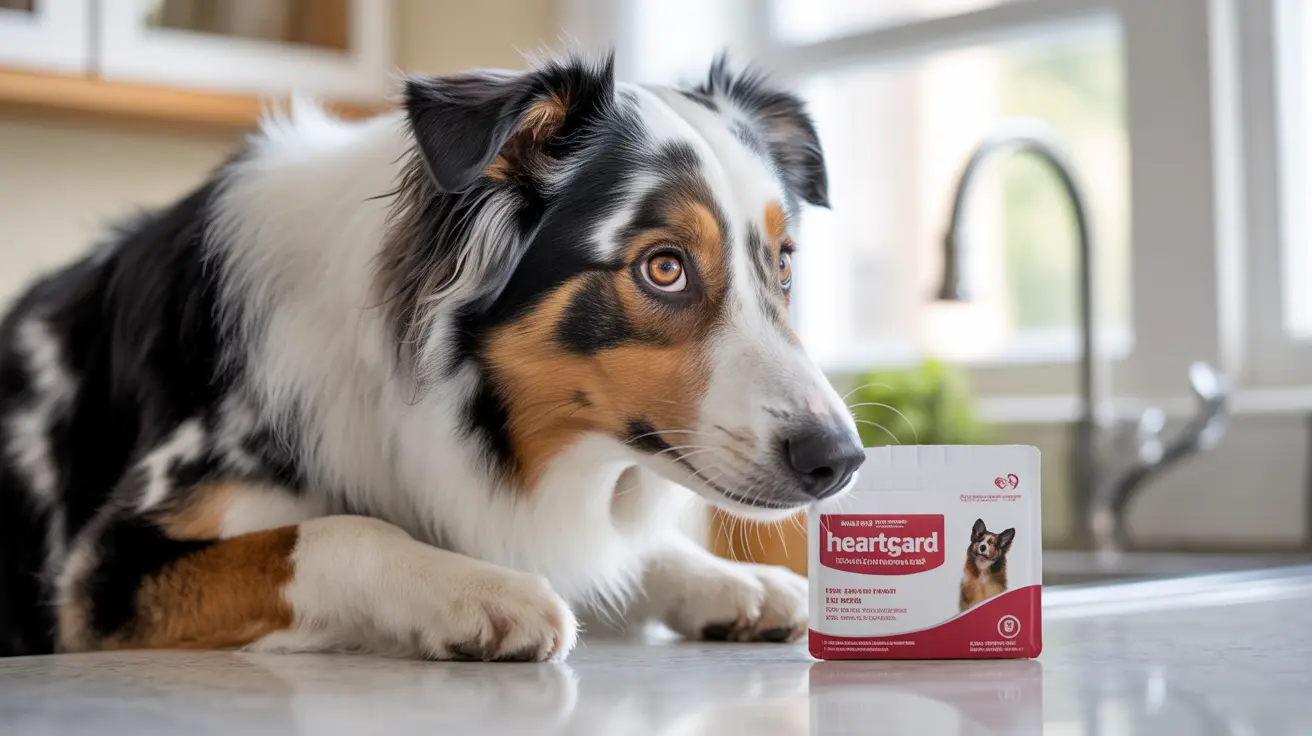As a widely prescribed monthly heartworm preventive medication, Heartgard's safety is a common concern among dog owners. While the medication is generally very safe when used as directed, understanding the potential risks of overdose is crucial for responsible pet care.
This comprehensive guide will explore the risks of Heartgard overdose, identify which dogs are most vulnerable, and outline what steps to take if you suspect your dog has consumed too much of the medication.
Understanding Heartgard and Its Active Ingredients
Heartgard contains ivermectin as its primary active ingredient, with Heartgard Plus also including pyrantel. The standard monthly dose of ivermectin in Heartgard is extremely low at 6 micrograms per kilogram of body weight, making it safe for most dogs when used as directed.
The medication works by eliminating heartworm larvae before they can develop into adult worms. At normal doses, it has a wide margin of safety for most dogs, with studies showing no toxicity at up to 10 times the recommended dose.
Risk Factors for Heartgard Overdose
Several scenarios can lead to potential Heartgard overdose:
- Accidental ingestion of multiple doses
- Administration of doses meant for larger dogs
- Access to concentrated livestock ivermectin
- Exposure through treated livestock manure
- Genetic sensitivity (MDR1 mutation)
Special Concerns for MDR1 Mutation Dogs
Certain breeds, particularly herding dogs like Collies, Australian Shepherds, and Shetland Sheepdogs, may carry the MDR1 gene mutation. These dogs are significantly more sensitive to ivermectin and can experience toxic effects at much lower doses than other dogs.
Signs and Symptoms of Heartgard Overdose
Early warning signs of Heartgard overdose include:
- Dilated pupils
- Difficulty walking or coordination problems
- Excessive drooling
- Tremors or muscle twitching
- Disorientation
- Lethargy
- Vomiting and diarrhea
In severe cases, symptoms may progress to:
- Seizures
- Blindness
- Coma
- Potentially death if left untreated
Emergency Response to Suspected Overdose
If you suspect your dog has overdosed on Heartgard, immediate action is crucial:
- Contact your veterinarian or emergency animal hospital immediately
- Have product packaging information ready
- Note the amount ingested and time of ingestion
- Follow veterinary guidance for immediate care steps
Prevention and Safe Usage Guidelines
To prevent Heartgard overdose:
- Store medications securely out of reach
- Use only the appropriate size dose for your dog's weight
- Keep records of monthly doses
- Consider MDR1 testing for at-risk breeds
- Keep dogs away from livestock medications and treated animal waste
Frequently Asked Questions
What are the signs that my dog might have overdosed on Heartgard?
Initial signs include dilated pupils, coordination problems, excessive drooling, tremors, and lethargy. Severe cases may show seizures, blindness, or coma. Contact a veterinarian immediately if you notice these symptoms.
Which dog breeds are most sensitive to Heartgard overdose due to the MDR1 gene mutation?
Breeds commonly affected include Collies, Border Collies, Australian Shepherds, Shetland Sheepdogs, Old English Sheepdogs, and German Shepherds. These breeds should be tested for the MDR1 mutation before starting Heartgard.
How should I respond if I suspect my dog has accidentally eaten multiple Heartgard doses?
Contact your veterinarian immediately. Have information ready about how many doses were consumed and when. Don't attempt home treatment, as professional medical intervention may be necessary.
Can giving my dog 1-2 extra Heartgard tablets cause poisoning, and when should I worry?
For most non-MDR1 dogs, 1-2 extra tablets are unlikely to cause severe toxicity. However, always contact your veterinarian for guidance, as individual sensitivity varies.
Why is Heartgard safer for most dogs but risky for those exposed to livestock ivermectin or large doses?
Heartgard contains a very low, carefully measured dose of ivermectin. Livestock formulations have much higher concentrations that can be toxic. Additionally, multiple Heartgard doses or larger-dog doses can exceed safe limits, especially in sensitive breeds.






